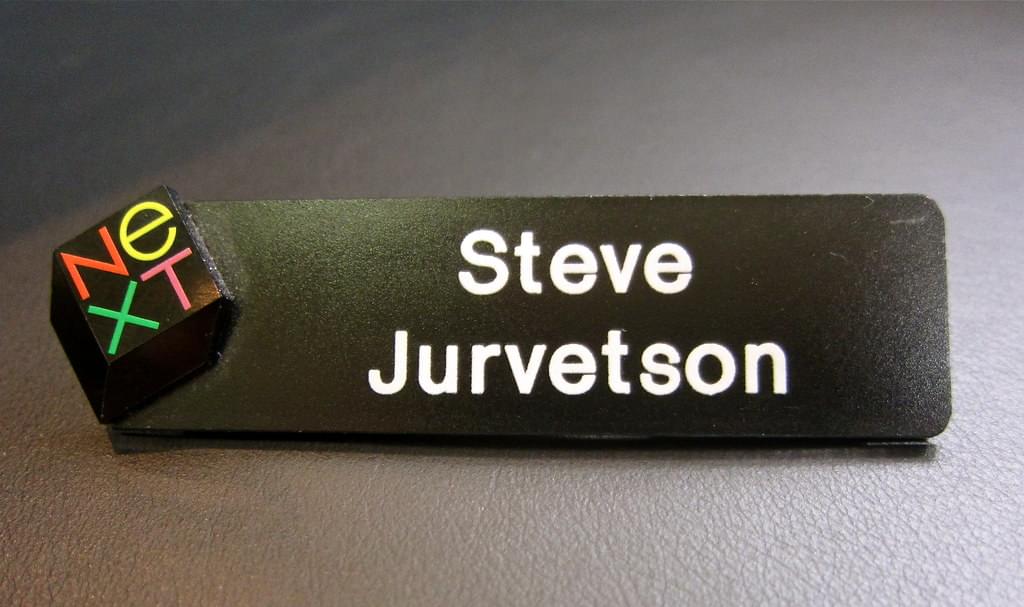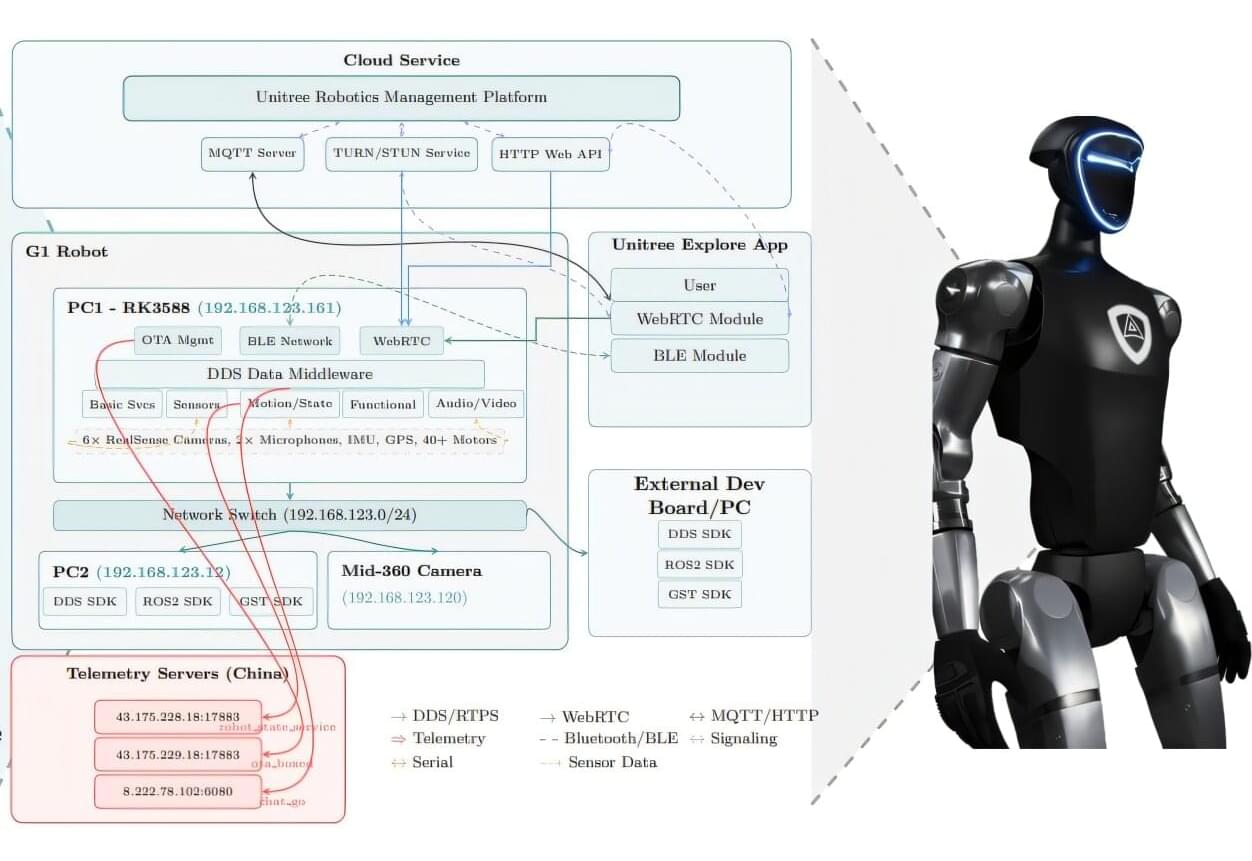Oracle warns of CVE-2025–61884 flaw in E-Business Suite enabling unauthorized data access.


Accelerating Promising Biotech Innovation — Dr. Aliza Apple, Ph.D. — Vice President, Catalyze360 AI/ML and Global Head, Lilly TuneLab, Eli Lilly and Company.
Dr. Aliza Apple, Ph.D. is a Vice President of Catalyze360 AI (https://www.lilly.com/science/partners/catalyze-360 and Global Head of Lilly TuneLab (https://tunelab.lilly.com/) at Eli Lilly where she leads the strategy, build and launch of Lilly’s external-facing AI/ML efforts for drug discovery.
Lilly Catalyze360 represents a comprehensive approach to enabling the early-stage biotech ecosystem, agnostic of the therapeutic area, designed to accelerate emerging and promising science, strategically removing barriers to support biotech innovation.
In her previous role at Lilly, Dr. Apple served as the COO and head of Lilly Gateway Labs West Coast, where she supported the local biotech ecosystem through early engagement and providing tailored offerings to meet their needs.
Prior to Lilly, Dr. Apple served as a co-founder at Santa Ana Bio, a venture-backed precision biologics company focused on autoimmune disease, and as an advisor to the founders of Firefly Biologics.

But the key is to see AI as fundamental, not a feature add. AI moves us from rule-based tasks to intelligent decision-making. When leaders rush to automate without analyzing and redesigning processes first, they implement smart tools on top of outdated workflows, expecting immediate gains.
I’ve seen it happen: When you apply AI to a flawed process, the consequences scale quickly. Instead, redesign workflows with AI at the core. Make sure the process makes sense before applying the technology.
Critically, when redesigning processes, understand that implementation is about leadership, not tools. IT teams often focus too much on tools and infrastructure without aligning automation efforts to clear business outcomes. Without engaging leadership and your workforce early and addressing cultural resistance, adoption stalls—even if the technology works perfectly.


For the special tribute issue of BusinessWeek that is coming out tomorrow, I tried to honor Steve Jobs in a small way with my memories of the NeXT days. Here is the version I wrote (the print edition has several sentences edited out) with some italics added to summary sections:
The book of Jobs, a parable of passion Steve Jobs was intensely passionate about his products, effusing an infectious enthusiasm that stretched from one-on-one recruiting pitches to auditorium-scale demagoguery. It all came so naturally for him because he was in love, living a Shakespearean sonnet, with tragic turns, an unrequited era of exile, and ultimately the triumphant reunion. At the personal and corporate levels, it is the archetype of the Hero’s Journey turned hyperbole. The NeXT years were torture for him, as he was forcibly estranged from his true love. When we went on walks, or if we had a brief time in the hallway, he would steer the conversation to a plaintive question: “What should Apple do?” As if he were an exile on Elba, Jobs always wanted to go home. “Apple should buy NeXT.” It seemed outrageous to me at the time; what CEO of Apple would ever invite Jobs back and expect to keep their job for long? The Macintosh on his desk at NeXT had the striped Apple logo stabbed out, a memento of anguish scratched deep into plastic. The NeXTSTEP operating system, object-oriented frameworks, and Interface Builder were beautiful products, but they were stuck in what Jobs considered the pedestrian business of enterprise IT sales. Selling was boring. Where were the masses? The NeXTSTEP step-parents sold to a crowd of muggles. The magic seemed misspent. Jobs was still masterful, relating stories of how MCI saved so much time and money developing their systems on NeXTSTEP. He persuaded the market research firms IDC and Dataquest that a new computer segment should be added to the pantheon of mainframe, mini, workstation, and PC. The new market category would be called the “PC/Workstation,” and lo and behold, by excluding pure PCs and pure workstations, NeXT became No. 1 in market share. Leadership fabricated out of thin air. During this time, corporate partners came to appreciate Steve’s enthusiasm as the Reality Distortion Field. Sun Microsystems went so far as to have a policy that no contract could be agreed to while Steve was in the room. They needed to physically remove themselves from the mesmerizing magic to complete the negotiation. But Jobs was sleepwalking through backwaters of stodgy industries. And he was agitated by Apple’s plight in the press. Jobs reflected a few years later, “I can’t tell you how many times I heard the word ‘beleaguered’ next to ‘Apple.’ It was painful. Physically painful.” When the miraculous did happen, and Apple bought NeXT, Jobs was reborn. I recently spoke with Bill Gates about passion: “Most people lose that fire in the belly as they age. Except Steve Jobs. He still had it, and he just kept going. He was not a programmer, but he had hit after hit.” Gates marvels at the magic to this day. Parsimony Jobs was the master architect of Apple design. Often criticized for bouts of micromanagement and aesthetic activism, Steve’s spartan sensibilities accelerated the transition from hardware to software. By dematerializing the user interface well ahead of what others thought possible, Apple was able to shift the clutter of buttons and hardware to the flexible and much more lucrative domain of software and services. The physical thing was minimized to a mere vessel for code. Again, this came naturally to Jobs, as it is how he lived his life, from sparse furnishings at home, to sartorial simplicity, to his war on buttons, from the mouse to the keyboard to the phone. Jobs felt a visceral agitation from the visual noise of imperfection. When Apple first demonstrated the mouse, Bill Gates could not believe it was possible to achieve such smooth tracking in software. Surely, there was a dedicated hardware solution inside. When I invited Jobs to take some time away from NeXT to speak to a group of students, he sat in the lotus position in front of my fireplace and wowed us for three hours, as if leading a séance. But then I asked him if he would sign my Apple Extended Keyboard, where I already had Woz’s signature. He burst out: “This keyboard represents everything about Apple that I hate. It’s a battleship. Why does it have all these keys? Do you use this F1 key? No.” And with his car keys he pried it right off. “How about this F2 key?” Off they all went. “I’m changing the world, one keyboard at a time,” he concluded in a calmer voice. And he dove deep into all elements of design, even the details of retail architecture for the Apple store (he’s a named patent holder on architectural glass used for the stairways). On my first day at NeXT, as we walked around the building, my colleagues shared in hushed voices that Jobs personally chose the wood flooring and various appointments. He even specified the outdoor sprinkler system layout. I witnessed his attention to detail during a marketing reorganization meeting. The VP of marketing read Jobs’s e-mailed reaction to the new org chart. Jobs simply requested that the charts be reprinted with the official corporate blue and green colors, and provided the Pantone numbers to remove any ambiguity. Shifted color space was like a horribly distorted concerto to his senses. And this particular marketing VP was clearly going down. People Jobs’s estimation of people tended to polarize to the extremes, a black-and-white thinking trait common to charismatic leaders. Marketing execs at NeXT especially rode the “hero-shithead rollercoaster,” as it was called. The entire company knew where they stood in Jobs’s eyes, so when that VP in the reorg meeting plotted his rollercoaster path on the white board, the room nodded silently in agreement. He lasted one month. But Jobs also attracted the best people and motivated them to do better than their best, rallying teams to work in a harmony they may never find elsewhere in their careers. He remains my archetype for the charismatic visionary leader, with his life’s song forever woven into the fabric of Apple. Jobs now rests with the sublime satisfaction of symbolic immortality. — It was daunting to reflect on such a great man, from a refined set of exposures… but he was my childhood hero, and I convinced him to let me do a study of his management style while a lowly employee at NeXT. Nevertheless, I wondered if I captured his essence in those years of exile from Apple. So, I was floored when the BW editor wrote back “I think this piece is one of the best things I have ever read about Steve.” :))

Researchers have uncovered serious security flaws with the Unitree G1 humanoid robot, a machine that is already being used in laboratories and some police departments. They discovered that G1 can be used for covert surveillance and could potentially launch a full-scale cyberattack on networks.
It sounds like the stuff of science fiction nightmares, robots that are secretly spying on you and could be controlled by remote hackers. However, the concern is real, as these types of robots are becoming increasingly common in homes, businesses, critical infrastructure and public spaces.


Agrivoltaics describes a process for the simultaneous use of agricultural land for food production and PV power generation. The technology enables the efficient dual use of agricultural land: photovoltaics on open spaces can be substantially expanded without significantly using up valuable resources of fertile arable land. Targeted light management optimizes the yields from PV and photosynthesis. In addition, value creation in the region and rural development are promoted, as agrivoltaic projects are ideally suited to be supported in a decentralized by farmers, municipalities and small and medium-sized enterprises. This results in new, economically viable farming options for agriculture.
We are working on the implementation and further development of agrivoltaics in industrial and research projects.
Opportunities in Agrivoltaics.
Agrivoltaics offers great opportunities for agriculture and climate protection. In their foreword, the two Federal Ministers Anja Karliczek and Julia Klöckner support the promising concept of combining agricultural production and renewable electricity generation on the same land.
The guideline provides information on the possibilities and advantages of agrivoltaics, offers an overview of its potential and the current state of technology, and presents practical advice for agriculture businesses, municipalities and companies.
Aside from more efficient land use, agrivoltaics can help reduce water consumption in agriculture, generate stable additional sources of income for farms, and make many farms more resilient against harvest losses. The early involvement of local citizens is a key criterion for success in the concrete implementation of agrivoltaics. https://www.ise.fraunhofer.de/en/publications/studies/agrivo…ition.html

Several artificial intelligence models are now advanced enough to pass the three-part chartered financial analyst exam, even the most difficult Level III test.
Previous research, particularly from two years ago, had found AI could clear Levels I and II of the exam, but it struggled with Level III, due to the essay questions.
The new study was developed by researchers from New York University Stern School of Business and Goodfin, an AI-powered wealth-management platform.
For humans to pass the prestigious, three-part chartered financial analyst exam, it typically takes around 1,000 hours of studying over the course of several years. New research found that the technology underpinning a slew of artificial intelligence models is now advanced enough to pass even the most difficult – Level III – mock exams in a matter of minutes.
The new study – developed by researchers from New York University Stern School of Business and GoodFin, an AI-powered wealth management platform – evaluated 23 large language models on their ability to answer multiple choice and essay questions on mock CFA Level III exams. They found frontier reasoning models, including o4-mini, Gemini 2.5 Pro and Claude Opus, were able to use “chain-of-thought prompting” to successfully pass.
Previous research, particularly from two years ago, had found artificial intelligence could clear Levels I and II of the exam, but it struggled with Level III, due to the essay questions. However, the technology has evolved so rapidly that the researchers wanted to know whether the models could handle, “specialized, high-stakes analytical reasoning required for professional financial decision-making.” The third CFA exam is primarily focused on portfolio management and wealth planning.
